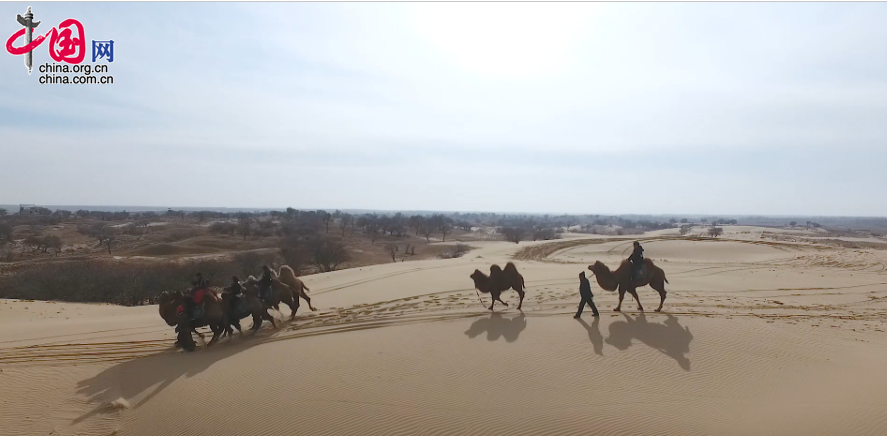51 year old Chang Ying is a resident of a remote desert village in Inner Mongolia Autonomous Region. He has three daughters, and had almost no source of income. A parcel of barren land was all the family had to live on, but the land is so infertile that almost nothing could grow on it. His eldest daughter dropped out of school because he couldn’t afford the expenses. Life was extremely difficult for him and his family.

Opportunities came in the summer of 2014 when a tourism company came to invest and turned the desert land into a scenic spot where villagers like Chang can make money by offering tourists horse or camel rides. “I had never imagined that the desert could be an attraction for tourists,” said Chang Ying with excitement.
At first Chang didn’t believe he could make money with a horse, but he was so poor that he had no other options and decided to give it a shot. “Chang is burdened with the costs of education for his kids and medical treatment for his wife, so we have allowed him to use our camels free of charge, and he takes all the earnings,” said Wang Xin, general manager of the Caogan Desert Tourism Co., Ltd.
It turned out that the revenue from one horse could reach 700 to 800 yuan a day. Apart from that incentive, each poor household is eligible for a subsidized loan of up to 50,000 yuan with which they joined the operation of the scenic spot and get a yearly dividend of 5000 yuan. This policy has helped to greatly improve the life of poor households.
“The poor households like mine are all shareholders of this scenic spot. Our incomes have increased a lot and I am now living a better life, I can afford better clothing, things that were unimaginable a few years ago,” said Chang Ying.
China has been encouraging poor villages to develop tourism by providing them with subsidies. In 2007, the number of tourist visits to rural areas exceeded 2.5 billion, benefiting 9 million rural households. 17.5 percent of the people who have risen above the poverty line have done so through engaging in rural tourism.
(Produced by "Aspire–Living Stories" team of China.org.cn)